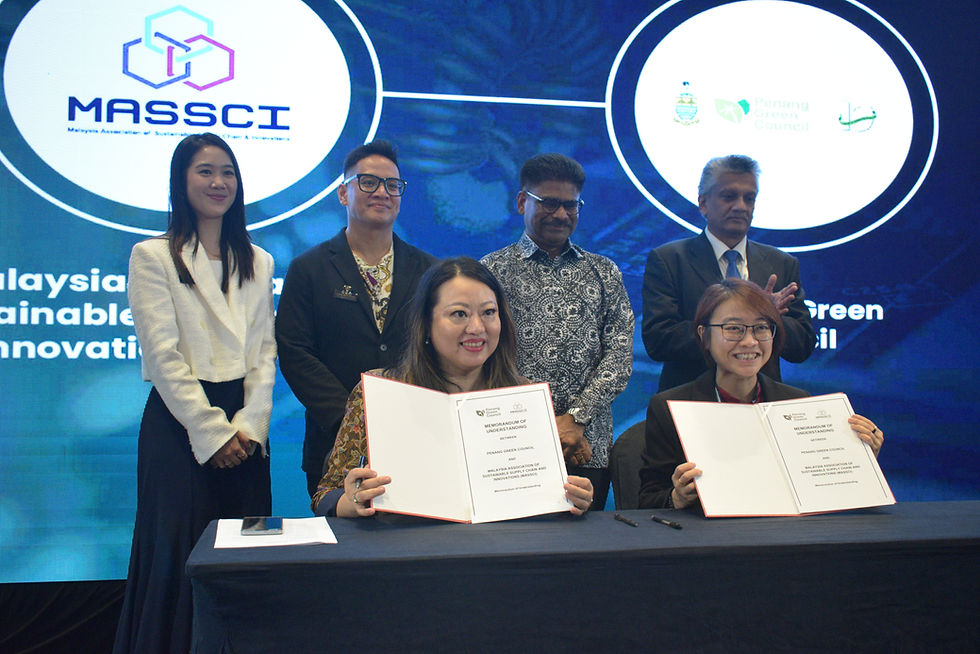Optimizing Smart Manufacturing with Rockwell Automation’s Solution
- Dec 6, 2023
- 4 min read
Interview with Shovan Sengupta, Regional Vice President, Market Access, Asia Pacific, at Rockwell Automation

Shovan joined Rockwell in 2021 as channel director, Asia Pacific. Since then, he has played a key role in leading the company’s channel strategy working with value-added distributors, specialty distributors, and authorized resellers. Following the acquisition of Fiix, Shovan implemented the Fiix Partner Pilot program and the Information Software Value-Added Reseller Program in the region. He is based in Singapore.
1. The industrial automation services market in Asia Pacific is expected to reach US$ 74.35 billion by 2027 and Singapore dominates the Southeast Asian market. What are the benefits and gaps that businesses need to address?
Rockwell Automation recently hosted our annual Partner Network Conference in Kuala Lumpur in May. The conference brought together industry leaders to discuss how businesses can connect these emerging trends to build and activate solutions for our joint customers. We had partners from India in the West to Japan in the East and all the way down to New Zealand in the South. What was clear was that the benefits and challenges of making manufacturing smarter are remarkably
similar across the region.
This was borne out in Rockwell’s 8th Annual State of Smart Manufacturing Report which highlighted many of the benefits and gaps that businesses must navigate. Businesses stand to be more sustainable, more efficient, and more productive by utilizing industrial automation services. According to our report, 29% believe that smart manufacturing has already helped them to keep pace with market transformations and to mitigate the lingering impact of the pandemic.

The streamlined processes help reduce human errors and boost overall output. Cost savings are another advantage, stemming from reduced labor costs and optimized resource utilization. Furthermore, automation services drive more consistent product quality due to standardized production processes. While the benefits are proven, many companies face challenges with
implementation.
According to the report, 48% of businesses report a lack of skills to manage smart manufacturing initiatives as the biggest barrier to adoption, while 46% report employee resistance to new technologies as the biggest barrier. Change management is therefore a key component of successful technology adoption, particularly when technology adoption adds new growth opportunities for employees.
Adoption also remains a challenge as shown by the 26% of automotive manufacturers that cite technology paralysis – an inability to decide between solutions – as one of their main obstacles to overcome. Other considerations are cybersecurity, system integrations, and regulation. Cybersecurity becomes paramount to safeguard interconnected systems against potential threats. Integration complexities between new and existing systems require resolution. Navigating evolving regulations and compliance standards is essential.

2. How does Rockwell assist companies in their smart manufacturing journey in terms of cost efficiencies?
Many businesses are turning to smart manufacturing technology to help solve their production challenges. They are investing in areas that help to address the skills shortage, machine learning, and artificial intelligence. Rockwell Automation supports manufacturers by providing hardware, software, and consulting services to address these needs. Importantly, we don’t do it alone. We partner with other technology leaders, original equipment makers (OEMs), distributors, and system integrators to provide innovative solutions to businesses wherever they are on their smart
manufacturing journey.
It’s also worth noting that while driving cost efficiencies is an important driver for smart manufacturing, it’s not the only benefit. Smart factories are also more sustainable, produce higher quality goods, and are more resilient. Less waste and more efficient use of resources like power
and water are good for manufacturers and good for the planet.

3. What are the challenges or barriers to the adoption of smart manufacturing that companies should consider?
Companies considering the adoption of smart manufacturing must contend with various challenges. These include potential resistance from the existing workforce due to fears of job displacement, the need for upskilling and reskilling employees to operate and maintain advanced systems, interoperability issues when integrating new technologies with legacy systems, cybersecurity risks in interconnected environments, and the complexities of managing and analyzing large volumes of data for actionable insights.
Addressing these challenges requires a comprehensive strategy that encompasses technological, organizational, and cultural changes to ensure the successful implementation of smart manufacturing practices. Rockwell and our partners are well-placed to help manufacturers navigate these complexities.

4. What is your view on the growth of smart manufacturing in the Asia Pacific? Are there any possible new partnerships or distributors that Rockwell is looking into?
The Asia Pacific region continues to adopt smart manufacturing at an impressive rate, and we are always looking for suitable partners to join our network. As the worlds of information technology (IT) and operational technology (OT) collide, and sustainability grows in importance, we are seeing new partners with different skills enter our ecosystem. I expect this trend to continue in the coming years.
5. Do share with us Rockwell’s growth objectives for 2023 and beyond. What are the market expansion challenges and opportunities that you foresee?
Together with our partners, we want to grow faster than the market. We see strength across multiple traditional industries as they transform such as food and beverage production and life sciences. We are also seeing ongoing investment in the energy transition market including the shift to electric vehicles and battery manufacture and recycling. This is a huge opportunity for Asia Pacific to continue to lead the globe.

-01.jpg)


